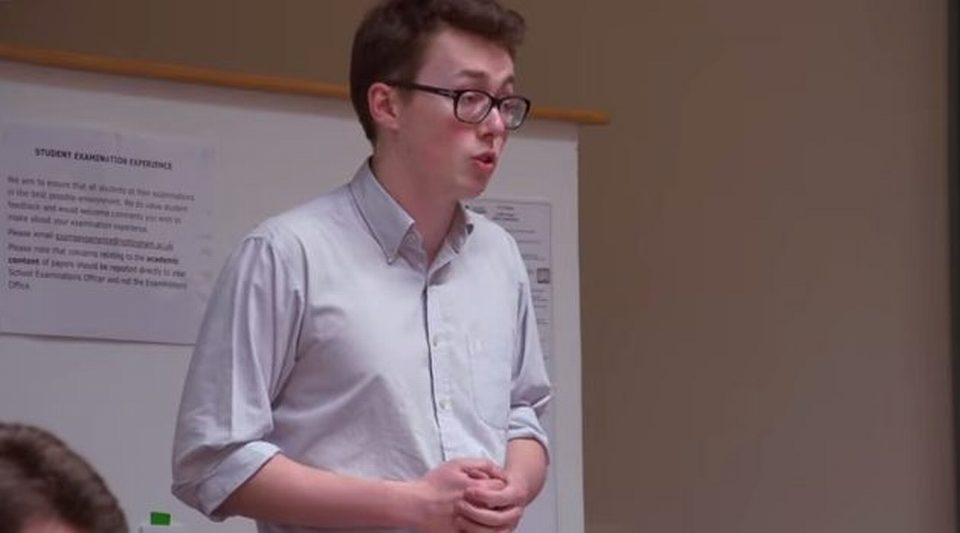Is Southern Nationalism the same thing as White Nationalism? The short answer is yes and no. This vexing topic is rarely if ever addressed, and the Southern cause is consequently reduced to a myopic, quaint subsidiary of a larger quest for a White ethnostate. Many racially conscious young Southrons, most of whom embrace their Southern identity, reflexively refer to themselves as White Nationalists. This is at least partially because they see their own Southern identity as lesser than and subordinate to their White identity. If Southern Nationalism is ever to capture a critical mass of these young men, the already racially awakened, then it is incumbent upon us to explain why, far from being a narrow, curious sect of White Nationalism, Southern Nationalism is an entirely different beast.
In the first place, we must acknowledge that the South is White. When we speak of the South, we speak of the White South. This is not debatable. It is simply a fact, one which is so self-evident that it is often taken for granted. In this respect, it can unequivocally be stated that Southern Nationalism is necessarily White Nationalism, but that White Nationalism is not necessarily—and is indeed often directly at odds with—Southern Nationalism. We are White and proud of it, but our racial identity does not, in and of itself, provide us with the nourishing fire which impels us forward. Our racial identity is a component of our primary, Southern, identity.
Our Christian identity is another component of our Southern identity. When we speak of the South, we not only mean the White South. We mean the White, Christian, South. Dixie is God’s Country, and we are God’s people—perhaps not His only people, but His people indeed. In this respect, one could state that Southern Nationalism is necessarily Christian Nationalism, but that, of course, Christian Nationalism is not Southern Nationalism. Here, we have our first major divergence from White Nationalism. Unfortunately, White Nationalism is afflicted with a deep antipathy for Christianity. To be sure, there is not much if anything about contemporary organized Christianity to recommend or endear itself to Rightists of any stripe. Jesus Christ Himself would abhor much of what today passes for “Christianity.” The subversion of Christianity, however pervasive, still cannot change the Word of God. Indeed, the grass withereth, the flower fadeth, but the word of our God shall stand forever.
Large numbers of White Nationalists, perhaps even constituting a majority, have no interest in reading or otherwise learning this truth. Instead, they nonsensically slander Christianity as “Jewish,” which would be news to the Jews who ordered the murder of Christ, the millennia of subsequent Jews who made and still make the annihilation of Christianity their highest mission, and the millennia of Christians who did their best to protect their people from Jewish corrosion. They create absurd cults, adopt pagan practices centuries removed from an idealized, obscure pre-Christian past, or rely on cold, dispassionate scientism. While we do not view these misguided, lost souls as our enemies, nor can we see them as our allies. We do not share any semblance of a common vision or mission with non-Christians.
Another major point of divergence for Southern Nationalists is that our cause is particular, while that of White Nationalists is abstract. Our goal, distilled to its purest, most essential form, is a free, independent Dixie, which one could see as a sort of reconstituted Confederate States of America. Our cause is rooted in one particular place—the South—and one particular people—White, Christian Southrons. Ours is an uncompromising and practically defined vision, one which is orders of magnitude more feasible than that of the inherently vague White Nationalist ethnostate. For example, where should such a state be? Even this simple question proves unanswerable with any degree of satisfaction by any great number of self-identified White Nationalists.
Furthermore, our identity as Southern is specific, corresponding to a real, historically defined, culturally, linguistically, and politically distinct population. While anti-White Leftists and egalitarian “colorblind” civic nationalists often make the ridiculous claim that White people do not exist (i.e., “I’m not White, I’m Italian”), while in the next breath uttering genocidal statements about those same White people whom they claim do not exist, there is a kernel of truth to the challenge.
Pan-European unity is a fiction; White people generally do not define their identities on purely racial grounds, but rather by their nationality. Far from joining hands as racial kinsmen, the kingdoms and then the nation-states of Europe have engaged in perpetual warfare against each other. When White men refer to themselves as such, their nationality subordinated to their race, it is typically limited to situations of oppositional ethnogenesis, where an external racial threat is involved—such as Amerindians, blacks, etc. And yet, even then, these expressions of White identity are often still expressions of national identity, the nation itself understood to consist of White people, rather than a conceptually White nation.
It is certainly true that, for all intents and purposes, America was intended to be and did function as a White nation for most of its history. Until the 1965 Hart-Celler Immigration Act, America boasted a 90% White supermajority and a small black minority, with other racial groups demographically insignificant—though not politically insignificant, in the case of America’s numerically infinitesimal but politically dominant Jewish minority. But, while American men always saw themselves and referred to themselves as White, it is only after the triumvirate of desegregation, the 1964 Civil Rights Act, and the 1965 Immigration Act that what we now call White Nationalism began to emerge.
Thus, before the middle of the twentieth century, White identity was merely a component of, and thus subordinate to, American identity. But American nationalism itself was an invention of war propaganda, most clearly traceable in its contemporary iteration to the bloodthirsty tyrant Abraham Lincoln’s Gettysburg Address. Without delving too deeply into the historical thicket, however, it will suffice to say that White Nationalism is a thoroughly modern creation.
Southern Nationalism, by contrast, is premised upon a Southern identity forged by centuries of blood, fire, and siege. Southern identity predates any American identity, and, while Southern men did see themselves and refer to themselves as White, their sectional identity as Southerners was always first. This identity was so deeply ingrained in the Southern psyche that it survived well after desegregation. Indeed, even today, large numbers of Southerners, perhaps even constituting a majority, still see themselves as Southern, although this has become subordinated both to American and partisan Republican identities. Southern Nationalism per se emerged in the antebellum period, mere decades before the War for Southern Independence, primarily in response to Northern rhetorical political vitriol and economic aggression. But its antecedent, Southern sectionalism, predated even the American War of Independence.
While Southern Nationalism and White Nationalism both emerged in response to external pressures, the nature of these pressures were and are of a fundamentally different character.
At the outset, we must address the Jewish Question. Without a solution to this question, there can be no solution to any question. While Jewish influence dominates our world, the security of our existence and the future of our children will always remain in danger. Make no mistake: Jews are the avowed enemies of the White race. At the bottom of nearly every single ill which afflicts Whites as a people, you will find a cabal of Jews. Every aspect of White Genocide is Jewish, from top to bottom. Jews do control every center of institutional power in the whilom West. Jews—the Synagogue of Satan—are the root of much of the evil in our world.
Their goal is the extinction of the White race, of all that is good, pure, and holy on this earth. Their goal is to profane the sacred. The sicker, the filthier, the fouler, the better. Nonwhites, including American Blacks and the constellation of “refugees” and “migrants” from Africa, Asia, the Middle East, and Central and South America, are the primary shock troops utilized by the Jews in their war against Whites. Insofar as Jews and their non-White pets constitute the enemies of the White race, so too are they the enemies of the Southern people, who, again, are White.
But this is not the end of the story for Southern Nationalists. No, the Southern people have an additional enemy, one who has inflicted far greater material and psychic damage upon Dixie than the Jews or their puppets ever have: the Yankees. Northern Whites have been, and arguably still are, our most pernicious foes. While it is true that all Whites are under attack from a truly genocidal force, Southrons face a deeper hatred than any other White ethnic group—save perhaps Russians—including from fellow Whites. Indeed, many prominent White Nationalists today heap scorn upon the South and our Confederate heritage.
Before the Jews ever worked to destroy the South, the Yankees literally put Dixie to the torch and the sword in the War for Southern Independence and then enslaved her in the most humiliating fashion conceivable during Reconstruction. Federal soldiers committed atrocities against Southern civilians at an unprecedented scale, the first real example of total warfare waged by a nominally civilized power. The next example would be the Anglo-Boer War, to which historians have devoted far more sympathy.
After the Yanks razed and materially annihilated the South, they subjected her to a decade of negro domination, during which the same White Northerners squeezed every last drop of blood from the already despoiled Southern turnip. The descendants of these Carpetbaggers wreak the same havoc across the South today, occupying our hometowns and our wildernesses, emanating as locusts from the coasts they have already destroyed in order to devour our birthrights in a grand scheme of physical, economic, political, and cultural dispossession.
What is now happening to the White race writ large—genocide—was initiated in the South long ago. In other words, even leaving aside the fact that our first and worst tormentors were White Northerners, the Jews and their tools targeted the South for destruction first. We were the canaries in the coalmine. Nobody cared. Indeed, many Whites—including self-identified “patriotic, conservative” Whites—enthusiastically cheered, participated in, and spearheaded the defenestration of Dixie. Similarly, our forebears saw what the United States Government was becoming, the monster that the Federal Leviathan was transforming into, more than a century before the contemporary Right did. Again, nobody cared.
Here, we come to another major point of divergence. Generally speaking, White Nationalists envision a single ethnostate or multiple ethnostates functioning as a White homeland, along the lines of: (1) some reclamation of the entire landmass of the United States of America as the nominally singular polity it now purports to be; or (2) a combination of balkanized ethnostates operating as a loose confederacy. Complicating this picture is the attachment of some American White Nationalist intellectuals to the concept of a pan-European supranational project, something akin to a racially conscious European Union.
Southern Nationalists start from the premise that the United States of America as a political unit is dead, and has been since 1860. The quintessentially American spirit that animated our ancestors in 1776 and 1861 was slaughtered on the battlefield in 1865. We do not put “America” first, because America does not exist. We are Dixie first. Even if it were feasible to reclaim the entire landmass of the currently extant United States—and it most certainly is not—we have no desire to do so. We do not give one hoot about the fate of New York, or California, or Illinois, or Ohio, or any other State not represented by the thirteen stars on each of the national flags of the Confederate States of America. While the Southern Nationalist project involves a sort of balkanization of the currently extant United States, the prevailing locations contemplated by White Nationalists for their ethnostate invariably exclude the South. Many White Nationalists have even suggested giving large swathes of the South to negroes.
In Dixie’s land, we’ll take our stand. The South is nonnegotiable. We place no stock in a vague, abstract “homeland” dominated by deracinated Yankees, for our homeland has a single location. Southern identity, although inherently racially defined by White identity, is simultaneously deeper, narrower, and yet more expansive than bare White identity. My own heritage is instructive of the difference between Southern identity and White identity.
I am half-White, half-Indian. My maternal lineage is Scots-Irish. It’s through this side of my ancestry that I am a proud member of both the Sons of the American Revolution and the Sons of Confederate Veterans. My earliest ancestors in this line emigrated to the Colonial South in the mid-to-late seventeenth century, perhaps even as early as Jamestown in 1616.
I have at least two ancestors who served South Carolina in the American War of Independence.
Glass Caston, my fifth-great grandfather, was born in 1732 in Essex County, Virginia, and became a carpenter and wheelwright. In 1754, he bought land in Orange County, North Carolina, where he quickly got involved in local politics, becoming constable in 1756. In 1763, Glass bought land in Craven County, in what is now Lancaster County, South Carolina. In 1765, he was appointed one of the County’s Justices. During our War of Independence, Glass served as Wagon Master for a supply train in Colonel Kershaw’s Regiment, supplying Patriots stationed at Purrysburg, near Savannah. After the War, Glass continued in public service; in 1784, he even ran against General Thomas Sumter, the Fighting Gamecock, for a seat in the State Assembly. He passed away in 1804.
Captain John Blakeney, my sixth-great-grandfather, was also born in 1732, in Mount Blakeney, Limerick County, Ireland. John came to the colonies around 1750, and by the early 1760s had settled in Chesterfield County, South Carolina. He became a substantial landowner and a successful planter. In 1775, he was elected Captain of the local militia. The next year, he received a Captain’s commission from the Provincial Congress and raised a regiment. John and his men were assigned to Colonel Benton’s Regiment, where he served as a Sergeant under the Swamp Fox, General Francis Marion. John passed away in 1832, at the age of 100.
I have at least eight ancestors who served the Confederacy in the War for Southern Independence.
Newman Robinson, my second-great grandfather, was born in 1841. He enlisted in the Confederate Army on April 8, 1861, just a few days before the Battle of Fort Sumter. He served throughout the War in the 5th Regiment of the South Carolina Volunteers, known as the Lancaster Greys. He was discharged from service a full four years after he had enlisted, on April 9, 1865, when General Lee surrendered at Appomattox. He passed away in 1924.
Newman’s father, Phillip, my third-great grandfather, served in the same company with him. Philip, born around 1815, was a plantation overseer. He was probably killed during the War. Newman’s brother, Warren, born in 1842, also served with the Lancaster Greys during the War. He passed away in 1916.
Lewis Rowell, another of my second-great grandfathers, was born in 1846. At age 16, he and his father, Henry, both enlisted in the Confederate Army, serving through the end of the War. At his death on June 15, 1944, at age 98, Lewis was the last surviving veteran of the War for Southern Independence in Lancaster County, South Carolina. On special occasions, like church service, Lewis wore his trademark white homespun suit. His birthday parties were the biggest event in the community each year, always attended by three to five hundred people.
My third-great grandfather, Jeff Ellis, was a Corporal in the 12th Regiment of the South Carolina Infantry. He was wounded at Manassas in 1862, and again the next year at Wilderness. In 1870, he passed away as the result of complications from those wounds.
My paternal line, as you likely surmised from my last name, is North Indian. Unfortunately, I don’t have as detailed knowledge of this side of my lineage. My grandfather, long since passed, was the genealogist of his family, and apparently took this knowledge with him to the grave.
My father came to North Carolina from India in 1984, joining several of his older brothers who had moved here before him. Interestingly, he had been reluctant to come to America.
In India, he had been involved with the RSS, a Hindu nationalist paramilitary organization which serves as the backbone of the Indian Right. The RSS is closely tied to the currently-ruling BJP government.
But his brothers asked him to join them, so join them he did. He waited until 2001 to become a citizen, not wanting to officially sever ties with his homeland. If it weren’t for my mother, he may well have returned to India in the 1980s.
Growing up mixed-race was interesting. In many ways, I had a traditional Southern upbringing. In other ways, I had a cosmopolitan upbringing. My parents loved to travel, and, being an only child, I always went with them. I’ve now visited nearly thirty countries on four continents.
My mom is a Southern Baptist, my dad a Hindu, but I was raised a Southern Baptist. All of my friends were always White. I never learned how to speak Hindi. I never identified as anything other than American. Beginning around junior high and high school, though, I began to experience identity issues.
By “identity issues,” I mean that I suddenly had a hard time fitting in and feeling a sense of belonging; part of this likely stemmed from being an only child, but I suspect that it was also at least partially driven by the fact that I had two cultures, two ancestries within me.
As I began to experience the alienation common to modern adolescence, I rebelled against my Southern roots and my Christianity. In this rebellion, I turned not towards my Indian heritage, but rather towards deracinated urban liberalism. I found my way home again, but I went through Hell to find my way back.
What had started as experimentation in high school developed into full-blown drug and alcohol addiction through most of my years at the University of Chicago. You name the drug, and I’ve almost certainly done it. You wouldn’t believe me if I told you how much liquor I drank on a daily basis, the copious quantities of hard drugs I did almost every night. I am blessed to still be alive. By the Grace of God alone, I overcame my addictions cold turkey. I’ve been fully sober now for four years.
My time at the University of Chicago also coincided with my awakening. Growing up in 90% White Bentonville, Arkansas, I bought the egalitarian hogwash hook, line, and sinker. It wasn’t until I moved to Hyde Park, on the South Side of Chicago, that this veil was pierced. You see, I witnessed racial reality for the first time—this was the first time that I had really had any dealings with blacks in their natural habitat. I also encountered Jews in significant numbers for the first time.
While I noted that there were no Southerners among the students or faculty, I found it strange that such a vast majority of faculty members were Jewish, and that Jews, who make up such a tiny minority of the American population, actually made up the majority of students in many of my courses. I had at least one Jewish roommate for most of my first two years, and I was astounded at how their behavior verified every single negative stereotype I had heard about their race.
My racial awakening also occurred almost simultaneously with the 2016 election. Seeing every single center of institutional power on earth align to destroy the Trump campaign really opened my eyes. Donald Trump was a totally non-ideological, pragmatic civic nationalist whose only real offense was speaking about issues that adversely affect Whites, giving life to the concerns of average White people. I’m under no illusions about Trump or his failed presidency, but his election was epochal; for the first time in many years, Whites began to feel that they had a voice. This was Trump’s crime.
I started systematically re-educating myself. Kevin MacDonald’s Culture of Critique is certainly the book most formative in my understanding of the Jewish Question that I read during this time, but it was Richard Weaver’s The Southern Tradition at Bay and Eugene Genovese’s The Mind of the Master Class, combined with Shelby Foote’s The Civil War, that set my long-dormant Southern blood ablaze. You see, it was not until I understood the truth about the South that I was able to understand the other truths that I have since come to learn.
I could go on—I read literally hundreds of books in a 3-year period, from 2016 to 2019. And I haven’t stopped. The point is that I returned home, both spiritually and physically. I read the entire King James Bible, for the first time in my life. I was saved, and then baptized. I gained a passion for my family history, my Southern ancestry, and joined SAR and SCV. I found my calling, my purpose, the reason for which God placed me on this earth at this time: to protect, fight for, and advance the interests of my people, the Southern people.
I’m not ashamed in the slightest of my Indian ancestry. I love and embrace all of my family, and of course I feel a kinship with India. It is only natural that I do. But I do not situate my identity there, nor do I situate my loyalty there. Though I am mixed-race, I am not mixed-identity. I am not an American, or an Indian. I am a Southron.
To those who believe that our day is done, that our cause is lost, I say: You know what they say about Southerners and Lost Causes. Our forefathers left their homes and their beloved behind, risking everything, laying down their lives and charging so bravely into the mouth of Hell because they knew that if they did not fight, their homeland would be lost, transformed into their worst nightmares.
They gave everything they possessed in order to transmit their inheritance, their Southern birthright, to generations yet unborn. They knew that, if they had stood by, their entire world would end, that the world which they had built for their children would be stolen from them and divvied into the hands of squatters not fit for the blessings of their civilization.
Pickett’s Charge, bloody as it was, should be the image etched in our hearts, the pool from which we draw our fortitude. These Southern heroes, common men only months before, fearlessly stormed an unassailable position, marching headlong into the impenetrable Yankee Leviathan because it was their duty. Union Colonel Frank Haskell described the Confederates thusly:
None on that crest now need be told that the enemy is advancing. Every eye could see his legions, an overwhelming, resistless tide of an ocean of armed men sweeping upon us! …Right on they move, as with one soul, in perfect order, without impediment of ditch, or wall, or stream, over ridge and slope, through orchard, and meadow, and cornfield, magnificent, grim, irresistible.
Let not our enemies need be told that we are advancing, immovable, magnificent, grim, irresistible.
We should also consider Edmund Ruffin, the greatest Fire-Eater of them all, a gentleman who spent most of his adult life laying the discursive groundwork for secession; who, at age 67, fired the very first shot on Fort Sumter from Morris Island. After Lee’s surrender at Appomattox, Ruffin chose to commit suicide rather than submit to Yankee rule, writing his famous last words:
And now, with my latest writing and utterance, and with what will [be] near to my latest breath, I here repeat, and would willingly proclaim, my unmitigated hatred to Yankee rule — to all political, social, and business connection with Yankees, and to the perfidious, malignant, and vile Yankee race.
It should go without saying that I am not advocating for Ruffin’s final course of action. But we should embody the principle: that, if we fail, life is not worth living. We have to understand this: everything that we love and cherish about our country, all that is pure and good on this earth, is directly tied to the reclamation of our Southern nation.
Remember, and never forget, what we are fighting for. The Andy Griffith Show has always been one of my favorite programs. Mayberry, North Carolina, the fictional town that it was set in, is a perfect image of midcentury Southern life. Our enemies tell us that Mayberry never existed. They’re wrong. Hundreds if not thousands of Mayberrys existed all over the South. My mom was blessed to have grown up in one.
My mother grew up in a tiny little town called Rich Hill, South Carolina. Her father was a sharecropper, and her mother was a homemaker. My mom lived next door to her grandparents, and every Sunday, after church, most of the extended family—more than fifty people—would gather there for a supper of fried chicken fresh from the coop, homemade biscuits, fresh vegetables from the garden, fresh churned butter, chess pie, pound cake, chocolate pie. On hot summer days, they’d sit under the oak tree churning ice cream.
Every year, her grandfather planted a garden, plowing it with a mule, walking behind in his worn leather brogans with this old iron plow. My mom would help the family shuck corn, hull peas, and string green beans. There was a lot of vegetable canning. They washed their clothes by hand.
After school, my mother would run next door and climb onto her grandpa’s lap under that oak tree. She’d reach in his pocket, and he always had a piece of gum or penny candy for her. Every day, he’d walk up the road to the corner store to visit with his friends and get his grandkids a treat. Her grandmother was always reading the Bible, rocking on the front porch.
That’s what we’re fighting for. Our posterity. A future for our children, a world in which that communitarian ideal isn’t just a memory, a world in which it’s a reality.
The blood of heroes courses through our veins. Through this ancestral blood, our forefathers commune with us. Their blood—our blood—calls out to us, challenges us, exhorts us, asking us why we allowed our enemies to drag us to this sordid, miasmic state of decay, commanding us to fight and to secure victory—not just to secure our existence and our future, but to triumph and fulfill the glorious plans they laid for us—to realize the future which they made possible for us.
Our duty is to take up our ancestors’ mantle, to preserve the birthright for which they sacrificed everything to bequeath to us, to stop squandering our inheritance and instead make ourselves worthy of their blood.
Our duty is to fill our descendants’ hearts with the admiration for us that we have for our forefathers, to give our children, our grandchildren, our great-grandchildren, and their children after them a legacy to uphold, a name to honor, a kingdom to maintain and advance.
It will take everything that we have and all that we are, but we can and will reclaim our homeland. It is ours, and ours alone. It belongs to nobody else, and it never will. What other region of the raped and desecrated corpse that is the United States of Weimerika has managed to hold on to any semblance of an identity?
The South lives yet. The South shall survive, or we shall die with her. And as ever, the Lord will vindicate our blood.
This is an expanded version of an article that will appear in edited collection The Honorable Cause: A Free South, to be released on March 31.
Neil Robinson Kumar ran for U.S. Congress in Arkansas’s Third District in 2022, garnering nearly 17,000 votes. He is a graduate of the University of Chicago and is now in his final year at the University of Arkansas School of Law. A member of both the Sons of the American Revolution and the Sons of Confederate Veterans, his lineage can be traced to Jamestown. His next book is a history of the Reconstruction Ku Klux Movement.
 Book Review of The Honorable Cause: A Free South (2023)
Book Review of The Honorable Cause: A Free South (2023)

















